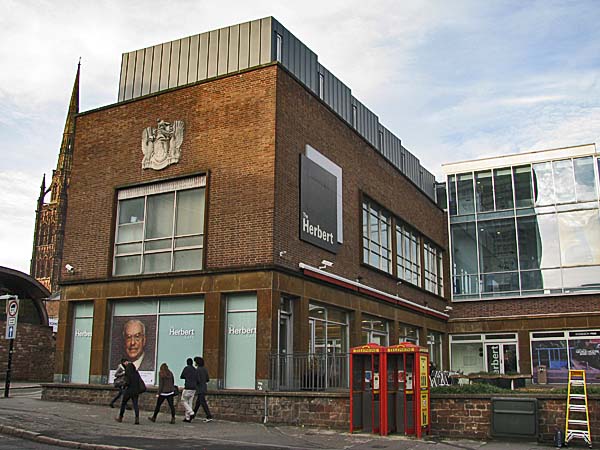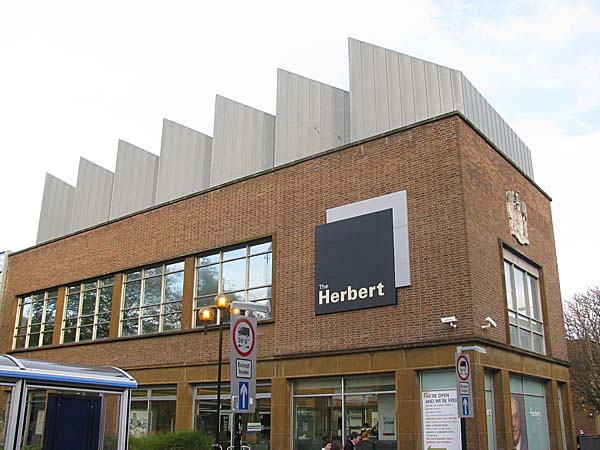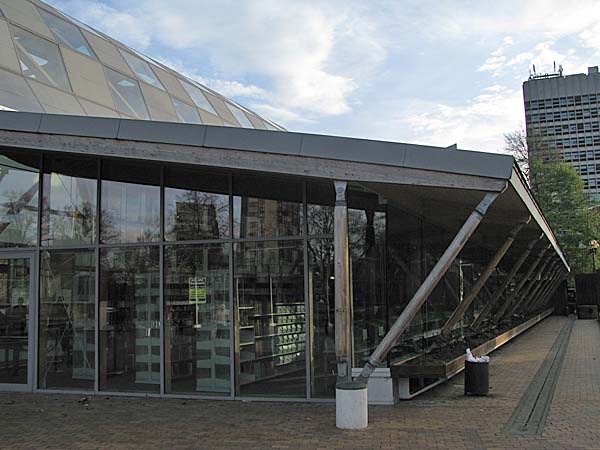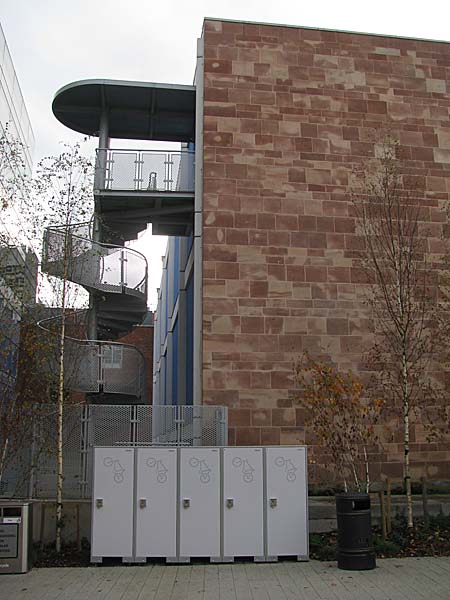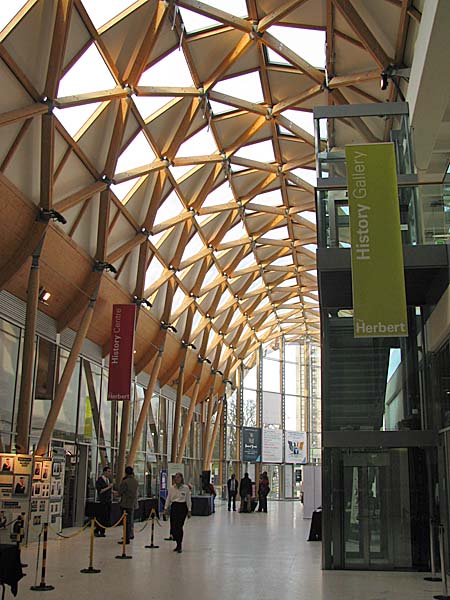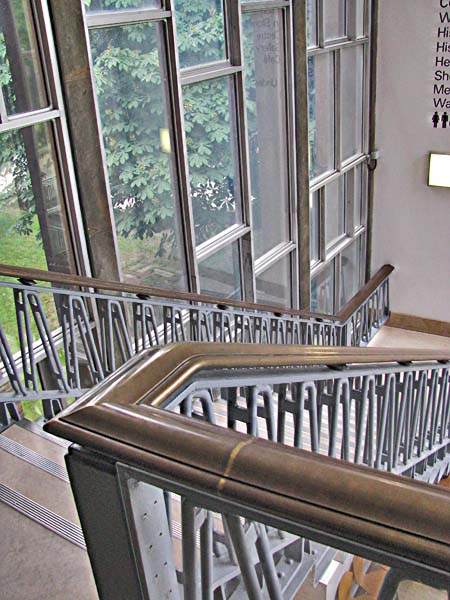| Architect |
Pringle Richards Sharratt |
| Date Built |
Opened 1960
- Refurbished 2008 |
| Location |
Jordan
Wells |
| Description |
|
|
The Herbert Gallery and Museum was
first planned in the 1930's after the
Coventry City Council purchased a parcel
of land on which it intended to erect a
building to house its collection of art
treasures and museum pieces. With
a donation of £100,000 from a local
industrialist, Sir Alfred Herbert, work
began in 1938. However, only the
basement was built before the War
brought construction to a halt.
Work started again in 1954 with the
laying of the foundation stone by Sir
Alfred Herbert, who added a further
£100,000 towards the cost of the
building. Herbert died three years
before the Musuem named after him opened
in May of 1960. 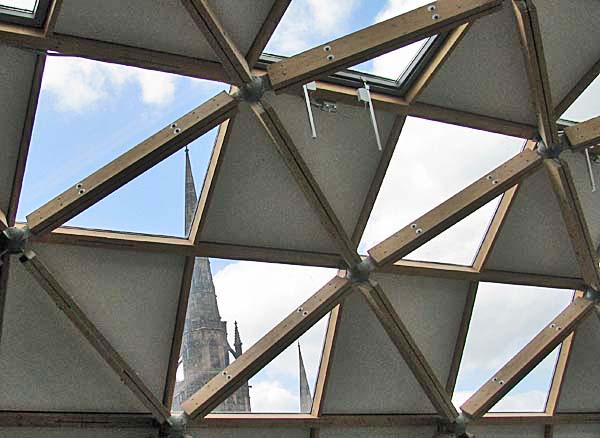 Raked timber columns support this structure on curved beams above the History Centre along the western edge, while the new two storey pre-fabricated, white concrete gallery extension offers support along the east." 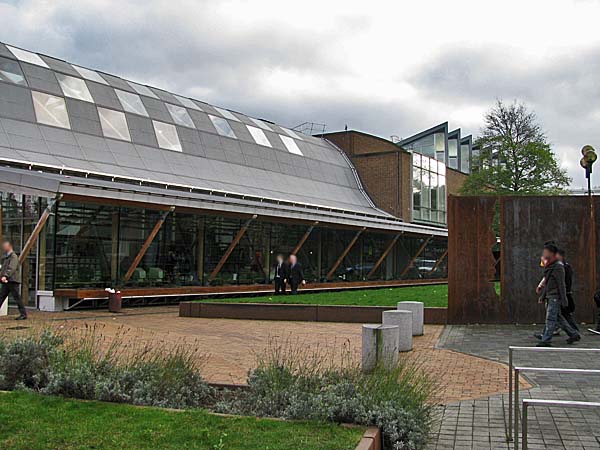 They add that, "Outside, a new Peace Garden flanks the History Centre along Bayley Lane, much of which was razed during the World War II Blitz in 1940. The sculptures highlight the destruction and the role of Coventry - twinned with Hiroshima and Dresden – promoting peace throughout the world. .... Cor Ten Steel walls, 3m high, are placed in accordance with historic party walls to re-instate the medieval proportion of the lane. " 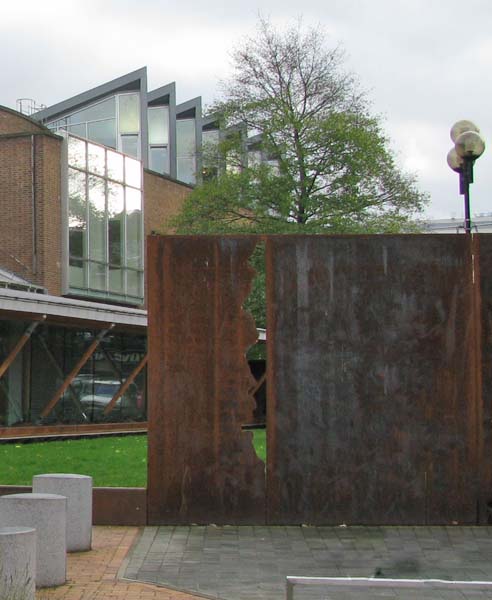 "Engraved on the walls are the names of people who lived in these houses throughout the centuries; while a ‘destroyed’ edge to the walls commemorates the Blitz." On the outside wall of the old museum building, beside Jordan Well, you will find two large Portland stone relief panels created by the artist Walter Richie. Originally these panels were located beside a fountain in the post-war shopping area of the redeveloped Coventry City Centre but were relocated here in the 1990s. They portray, "'Man's Struggle to control the World outside himself."
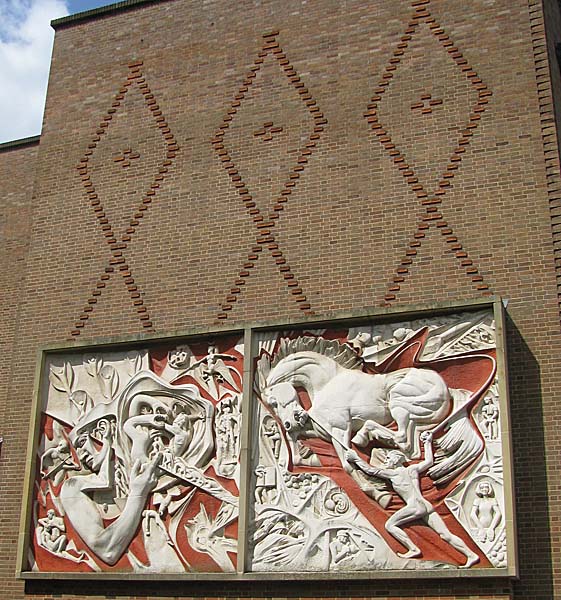 |
|
The Herbert Art Gallery & Museum - Coventry, UK 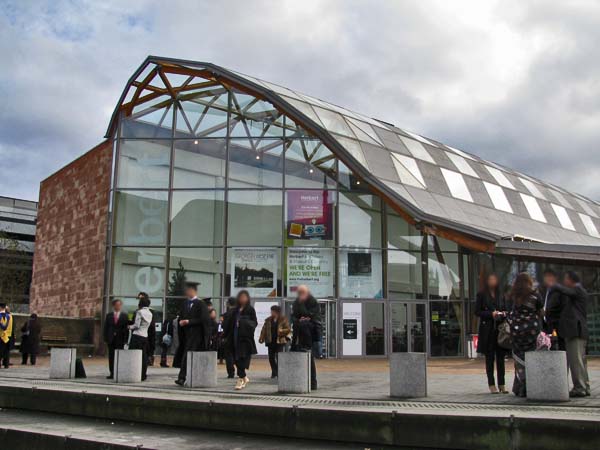 |
